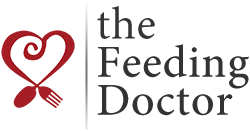"Maggie Goes On a Diet," not so surprising, part of a continuum...

 I have seen a lot of (deserved IMHO) outrage to the yet-to-be-released "Maggie Goes on A Diet." It is interesting. It is good (the outrage, that is...)What is curious to me is that people seem to be surprised the book is out there, though it does seem to lack a certain finesse or savvy. Most people (even those who endorse calorie restriction for kids) know not to use the "D"-word. Would there be such an outcry if the title said, "Maggie Gets 'Healthy'?" (I am not saying what she does is healthy, but commenting on how the messaging matters...)Which gets me to a book I looked at a few years ago, called "I Get so Hungry." It is a similar book in that it is written for children, the subject is a young girl who is fat (therefor unhealthy) who makes changes in her eating and exercise and loses weight, and stops getting teased, and so it's a happy ending-right? Is the message kids get from this book all that different from 'Maggie Goes on a Diet?' Is it less harmful?I remember Ellyn's insightful, knowledgeable and touching review of "I Get so Hungry" on Amazon, which she gave me permission to post here. (She hits every point, and I could not say it better, so I won't even try...)
I have seen a lot of (deserved IMHO) outrage to the yet-to-be-released "Maggie Goes on A Diet." It is interesting. It is good (the outrage, that is...)What is curious to me is that people seem to be surprised the book is out there, though it does seem to lack a certain finesse or savvy. Most people (even those who endorse calorie restriction for kids) know not to use the "D"-word. Would there be such an outcry if the title said, "Maggie Gets 'Healthy'?" (I am not saying what she does is healthy, but commenting on how the messaging matters...)Which gets me to a book I looked at a few years ago, called "I Get so Hungry." It is a similar book in that it is written for children, the subject is a young girl who is fat (therefor unhealthy) who makes changes in her eating and exercise and loses weight, and stops getting teased, and so it's a happy ending-right? Is the message kids get from this book all that different from 'Maggie Goes on a Diet?' Is it less harmful?I remember Ellyn's insightful, knowledgeable and touching review of "I Get so Hungry" on Amazon, which she gave me permission to post here. (She hits every point, and I could not say it better, so I won't even try...)
Reinforces bigotry and makes children feel worse, not better, November 20, 2008
Bebe Moore Campbell's heart was in the right place when she wrote this book, "to touch kids and parents and help them make changes in their lives." It is too bad that this final of her writings doesn't represent the thoughtfulness and careful research of her other work. According to the author, Nikki and her teacher, Mrs. Patterson, are gluttons--they load up on the wrong foods and fail to eat the right foods. Nikki's mother is even worse--not only is she a glutton, she encourages her daughter to be one, too. Nikki and Mrs. Patterson become thin when they stop being gluttons. This book demonstrates common attitudes: people are fat because they eat too much; anyone can become thin if they try; and everyone (and her mother) should be willing to try. Research supports none of it. Body weight is most strongly determined by genetics. Those who try to overcome their genetic endowment by dieting get fatter, not thinner, even when they diet by eating "good food," or "the right things," as Nikki and her teacher do. Nikki's and Mrs. Patterson's weight loss is extremely unusual. So unusual, in fact, that it is simply cruel to lead the child reader and her parents to believe that problems with peers will be resolved by losing weight. Nikki's mother is represented as not caring what she feeds Nikki. Only a minority of parents of children of size simply don't care--about the same percentage as the population as a whole. Given all these flaws, rather than achieving the author's goals, it is more likely that this book will reinforce the bigotry that fat children and their parents have to deal with and make them feel worse, not better. It's too bad--Campbell had a good thing going by making Nikki popular and talented. I wonder why she didn't take Nikki one step further by having her stand up to her tormentor, thereby showing how successful she could be without having to be skinny? To read that book, check out Fat, Fat, Rosemarie by Lisa Passen. Ellyn Satter, author, Your Child's Weight: Helping Without Harming.I also liked this line from another review:"I liked that it encouraged kids to eat healthy foods and exercise in ways the feel good to them, but it sets unrealistic expectations around the possibility of long-term weight loss. The most obnoxious aspect of the book is that the bully stops tormenting the girl because *she* changes--not him--setting up bullying as a sort of reverse inspirational technique."Those of you who were outraged by MGOD, are you similarly angered by "I Get So Hungry?" Do you see a connection? One is more extreme, less nuanced perhaps, but both perpetuate harmful misconceptions, reinforce body dissatisfaction, offer false promise of weight loss etc. I would guess that many in the medical and public health fields would decry MGOD but would also heartily recommend IGSH...What do you think?
